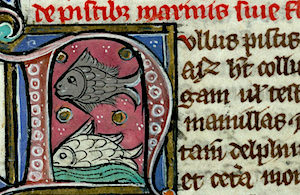In the second century CE, Oppian of Cilicia was able to draw on a complex accumulated tradition of ancient Greek marine knowledge in composing his Halieutica, a remarkable five-book didactic epic on sea-fishing. The poem encompasses both zoological material on sea-creatures (books 1-2) and a wide range of methods for capturing those creatures (books 3-5), yet Oppian does not present himself as a practical expert in the world of fish or fishing. Instead his poetry lays emphasis not only on the technicalities of setting bait and entrapping fish, but also on the lives, motivations, and social structures of these fascinating creatures, and on the wider lessons that humans beings can learn from their behaviour. This paper considers what it means for Oppian to write about fish in epic verse, examining the ways in which this didactic poem is shaped by the combination of traditional zoological and piscatorial information with the poetic and philosophical explanatory systems represented by the hexameter poetry of Homer, Hesiod, and Empedocles, amongst others. The Halieutica, I show, is a poem in which technical zoological knowledge – the information transmitted across centuries in Greek scientific and natural historical traditions – intersects with alternative models for understanding the natural world, and one in which sea-creatures are set continually in relation to other (human and non-human) animals.
|
'The tribes of the sea': sea-creatures in Oppian's 'Halieutica'
1 : University of Nottingham
|
| Online user: 19 | Privacy |

|

 PDF version
PDF version